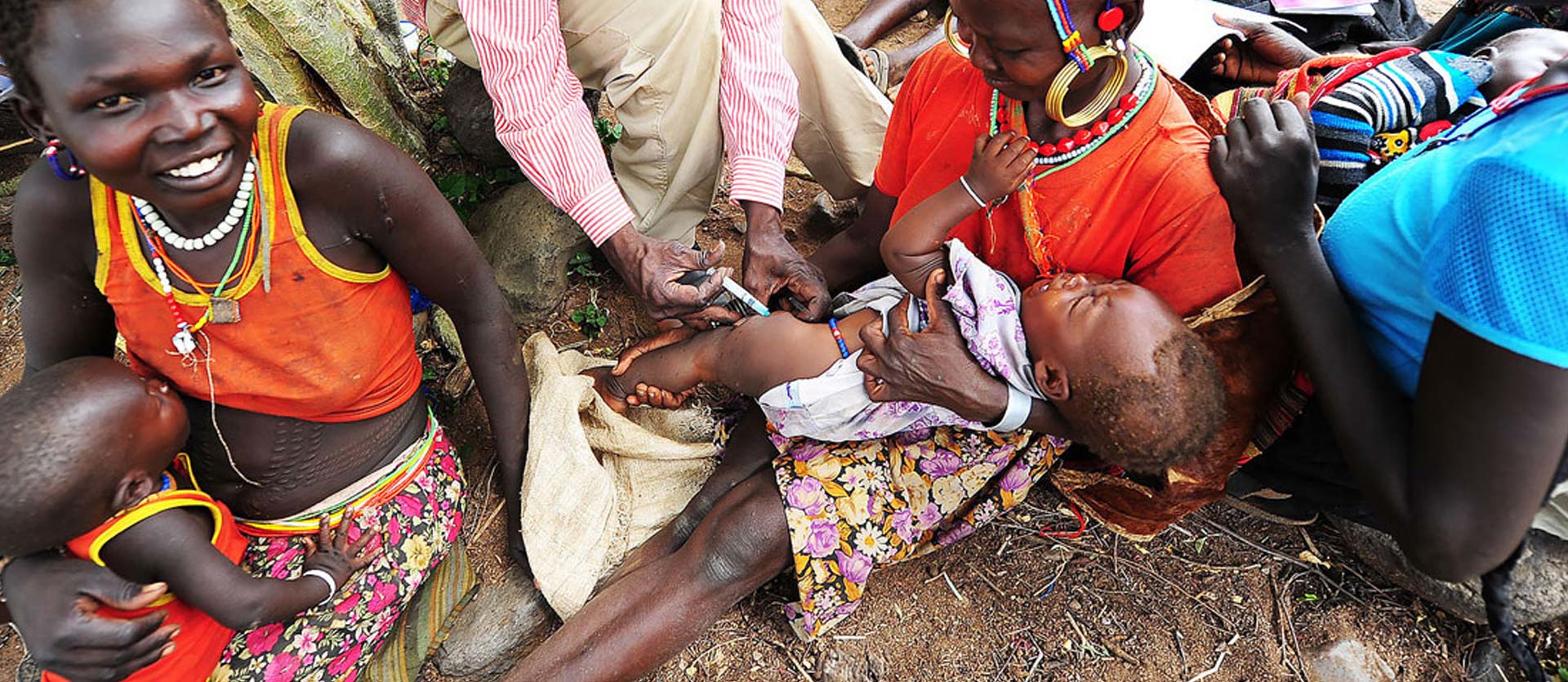![]()
Immunization
Globally, immunization prevents 2-3 million deaths each year. The World Health Organization (WHO) estimates that the remaining under-5 deaths — approximately 1.5 million deaths annually — could be prevented with existing vaccines. Success in reducing vaccine-preventable mortality has been dramatic, but it cannot be taken for granted.
MCSP worked to operationalize USAID’s longstanding commitment to strengthen routine immunization (RI). By increasing capacity to achieve and sustain high and equitable immunization coverage levels with all appropriate vaccines, we reached the unreached and reduced child mortality.
Our approach:
- Provided the foundation for timely vaccination;
- Supported and sustains new vaccine introduction;
- Contributed to the achievement of disease control initiatives; and
- Advanced other health interventions.
MCSP was a global leader in the arena of immunization, helping to shape policies and strategies in close partnership with ministries of health, the WHO, UNICEF, Gavi, and in-country partners. Our participation in selected global working groups and committees amplified the Program’s learning while infusing the strategic and operational plans of key partners with pragmatic, operational considerations based on field realities.
We worked to strengthen country-level capability to manage the delivery of immunization services and promote their acceptance and utilization by tailoring immunization strengthening approaches to each country’s context. By strengthening key neglected program components of the RI system — such as the supply chain and community partnerships — and improving the generation, quality and local use of data, we helped to ensure timely childhood vaccination.
Our team applied a variety of strategies to improve immunization management in-country through in-service training, supportive supervision, on-the job training and mentoring, and pre-service education. MCSP also partnered with WHO to develop, review and adapt capacity-building materials and guidelines to be used at the country level.
Fostering strong partnerships between the health system and communities, including caregivers, was critical to achieving our global goals. These partnerships improved the shared planning, delivery, utilization and monitoring of immunization services, and gave particular attention to reaching underserved populations and reducing drop-out rates.

